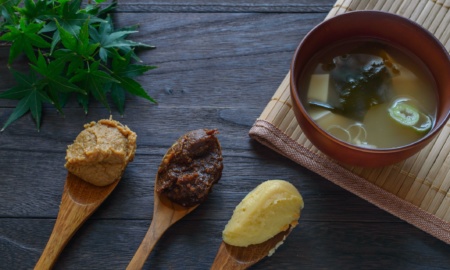
Mushrooms: there are the good, the bad, and the psychedelic. Most people are familiar with the latter varieties – the psychedelics in movies like Alice in Wonderland, or the toxic species mistakenly gathered by foragers who subsequently land in the hospital. But another class of mushrooms have been neglected and underutilized: the medicinal mushrooms. The good guys. Though they have a long history of use in Chinese, Japanese, and Eastern European medicine traditions as adaptogens, Western medicine is just catching up to the health benefits of mushrooms.
Mushrooms support immune function, and they do so in a way that is normalizing to the immune system as opposed to being a stimulant. You can think of them as immune tonics that are applicable in a wide variety of situations, including-
- Lowered resistance and “catching things” easily
- Chronic or persistent infections
- Certain autoimmune disorders
Mushrooms affect immune function because they have compounds that resemble a microbe. Our vigilant immune cells sense this and respond to it by increasing innate immune activity (our front-line defenses). This puts our system on alert and provides a workout for our immune systems, making them stronger over time. Many types of mushrooms provide this activity, even common edibles like Shiitake and Oyster mushrooms.
Though they’re rock stars for our immune systems. But they help support other areas of the body too, like the nervous system, liver, cardiovascular system, and others. For a closer look, let’s examine the some key mushroom species that are frequently used for their health benefits.
A Few Favorites
Reishi (Ganoderma lucidum) – Reishi is probably the most well-known medicinal mushroom. Its use as a general wellness tonic is evident in some of its other common names, like “Mushroom of Immortality” and “Mushroom of Longevity”. It can be used on an acute as well as long-term basis to support immune functioning. This restorative mushroom also helps support the adrenal glands. I think of this as the mushroom to use when you’re stressed out, run down, and getting sick frequently. It’s also a fabulous mushroom for allergies and hay fever as it can reduce the histamine response to environmental triggers. The doses are on the high end for medicinal mushrooms. It’s suggested to take 5 ml of the tincture 3 times daily for active immune boosting, or 2 ml twice daily for immune and adrenal support.
Lion’s Mane (Hericium erinaceus) – Lion’s Mane is a beautiful white mushroom that resembles a white pom pom with elongated spines. It too supports immunity, but Lion’s Mane is really best known for its neurological and mental health benefits. It contains compounds that protect and promote growth in neurons. Clinical research with Lion’s Mane has demonstrated efficacy for anxiety, depression, and cognitive function. This is a mushroom to consider for overall nervous system health. Lion’s Mane mushroom powder is often found as an encapsulated product. Maintenance doses are 1-2 g daily, with the therapeutic doses starting at 3 g daily.
Maitake (Grifola frondosa) – This is a prized gourmet mushroom famous for its immune supportive properties. It contains a compound known as D-fraction that has been heavily researched for cancer treatment. Maitake may also help address common cardiovascular risk factors, such as high blood pressure, elevated cholesterol levels, and even blood sugar issues. Maitake mushrooms can be incorporated into your diet for year-round immune health. Tincture doses are 5 ml 3 times daily for active immune boosting, or 2 ml twice daily for maintenance.
Chaga (Inonotus obliquus) – Chaga, which grows at the base of paper birch trees – abundant where I live in Western Massachusetts, like other medicinal mushrooms, contains compounds called beta-glucans, a form of polysaccharide, which enhance immunity and reduces inflammation. But chaga also contains important medicinal compounds, like betulinic acid, from the birch trees they grow on and help to protect. Chaga has been in use as a medicine for thousands of years, and has been included in the medical pharmacopoeia in Russia for nearly 75 years and a number of studies support its use.
Using Mushrooms for Daily Health
So how do you take mushrooms? The first thing to know is that they have to be heated in order to be bioavailable. The fungal cell wall is indigestible, and heat allows the cell wall to break down in order to access their nutrients. There are supplements available on the market in the form of capsules and extracts.
But you can also prepare teas using mushrooms. In fact this is the traditional way that they were prepared as immune tonics. Mushrooms are easily obtained in dried and sliced forms, which is perfect for making tea.
When you’re looking to purchase a mushroom supplement, there are some things to look for-
- get USA-grown organic mushrooms: mushrooms can accumulate heavy metals, so check the sources when purchasing a product
- make sure that the mushrooms have been heated for nutrient bioavailability
- if purchasing an extracted product, make sure that both water as well as alcohol are used – alcohol is important to extract many of the important compounds
Mushrooms have a lot to offer in terms of overall health. They can improve immune function and vigor and support many other systems of the body. Here are summary points:
🌿 Promote energy and reduces fatigue
🌿 Support immune health
🌿 Reduce inflammation
🌿 Calm the stress response
🌿 Act as antivirals
🌿 Improve overall resilience.
And here are some wonderful recipes to help you make medicinal mushrooms a welcome daily tonic.
Reishi Chai Tea
In 1 quart of water, add:
- 2-3 slices of dried Reishi mushrooms (available organically through Mountain Rose Herbs)
- ½ cinnamon stick
- 5 allspice berries
- 3 cardamom pods
- 2 cloves
- 1 peppercorn
- Pinch nutmeg
Turn heat on medium-high until the tea reaches a boil. Lower heat and simmer for 15-20 minutes. Strain and add milk and sweetener of your choice. You may also add other herbs – I add a pinch of Ashwaganda root for extra adrenal support, or dried Elderberries for added immune benefits. This can be stored in the fridge and chilled for an iced version.
Chaga Hot Cocoa
- Make 2 cups of cashew milk (soak ½ cup cashews in 2 cups cold water for 1 hour, strain, blend with 5 pitted medjool dates and 2 tsp vanilla extract for 2 minutes.
- Put 2 tsp chaga powder (ie from Mountain Rose Herbs) in a cup, cover with 2 TBS boiling water – let sit for 5 minutes.
- Heat cashew milk gently – don’t boil.
- Stir 1 TBS organic good quality cocoa powder and a dash of cardamom powder into chaga ‘paste’.
- Add 1 cup cashew milk, stir well.
- Dust with cocoa powder.
Enjoy up to 1 cup daily of either recipe.
Not for regular use in pregnancy; safe while BF’ing. Check with your care provider if you have diabetes or autoimmune disease.
Also see
Art work in banner by my daughter, Naomi Romm.


